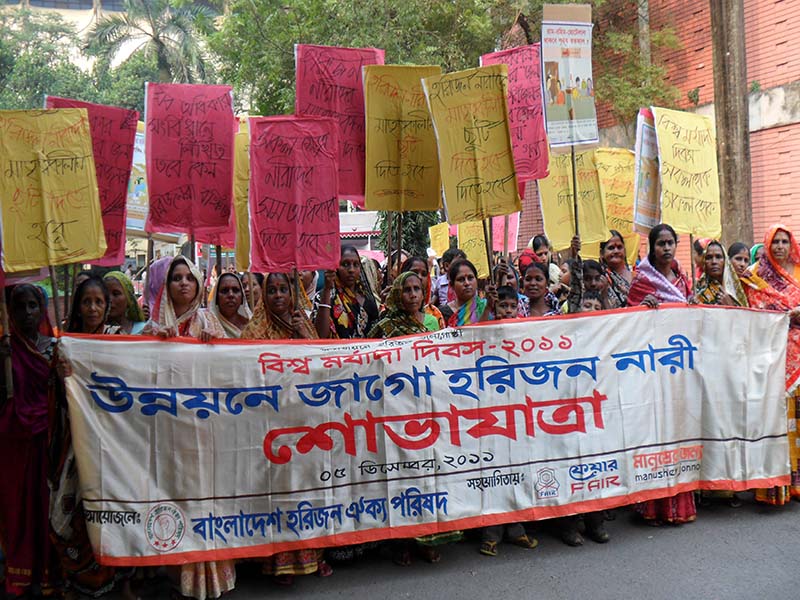
Dignity and Rights for Excluded and Marginalized Community (DREAM)
Project brief:
Project brief: With a view to establishing human rights and dignity of Dalit communities of the country by increasing Dalit community people’s access to different GO-NGO services, especially education, health, job and safety-net program this project is being implemented with the financial support of MJF. Moreover, to change the attitudes of mass people towards the Dalit communities the project initiated planned activities. As a part of the strategy, the project assisted BHOP to raise their voice at national level and also undertook activities to assist different groups i.e. women groups, youth forums, adolescent girls groups to assist them in capacity and awareness through meetings and planned activities in the working areas so that they can claim their demands from the concerned authorities. Different demand or issues related to the community people’s development are identified and selected through these group meetings and based on this recommendations AG try to increase Dalit people’s access to different GO-NGO services through their advocacy initiatives. The project staff coordinates and provides technical support to these initiatives.
Project objectives:
- Strengthen the BHOP to make effective and vibrant movement by facilitating their initiatives in local and national level;
- To Create demand regarding basic human rights of Dalit community and sensitize different service providers to increase access of community people in different GO/NGO services and resources (Health & Sanitation, Education, Safety Net Programs, Employment Generation Training etc.);
- Sensitize general people to uphold dignity of Dalit community;
- To reduce Violence against Harijon/Dalit women by developing community awareness.
Target group: Dalit community people of Bangladesh
- Direct :9825 (Male 5046 – Female 4779) and
- Indirect: 40000 Harijon/Dalit community people (Approximately).
Project duration: August 2013-December 2016
Working Area: Kushtia, Pabna, Chuadanga, Nator and Rajbari district of Bangladesh.
Main action:
- Organizational capacity building of BHOP;
- National and local level advocacy and lobby initiative;
- Ensuring education (coaching, material and financial) support;
- Community awareness and mobilization;
- Awareness/Sensitization of GO-NGO service providers;
- Building linkage mechanism with Govt. services provision and
- Public awareness/sensitization on dignity and discrimination of Dalit peoples.
